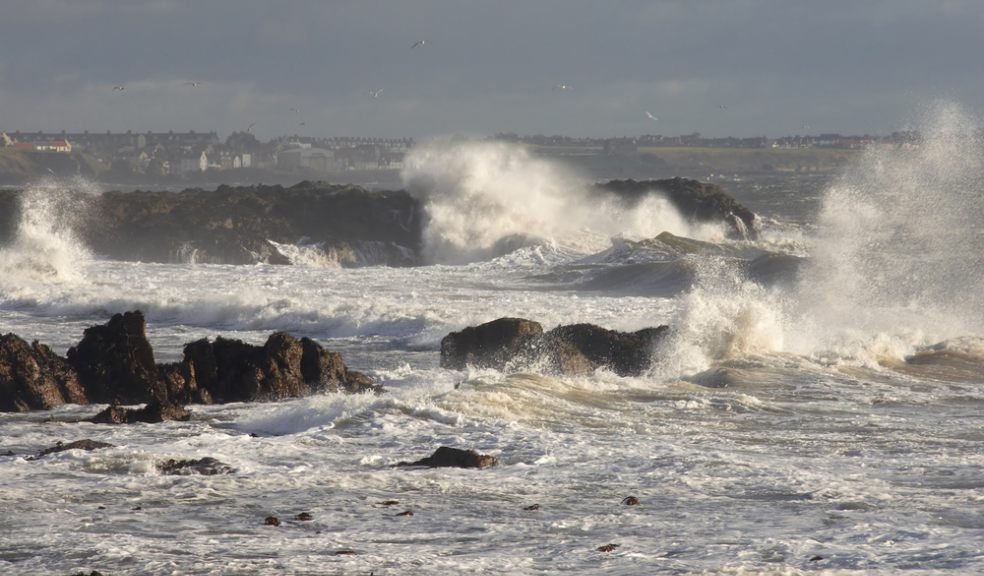
Extreme weather threatens Britain’s coastline
Britain’s rocky coastline is being reshaped and eroded by the increasingly common extreme weather, University of Exeter researchers have found.
Rock coasts erode quickly and are more vulnerable to stormy weather than previously thought, a new study shows.
According to the first data collected on how they behaved before, during and after a storm large boulders can shift daily. It is hoped the research will allow erosion risk and sediment supplied from rocky coasts to be more accurately measured in future.
The data also shows that rock coasts have the potential to supply – and break down – much more coarse sediment into our coastal environment than previously thought. The research was carried out in March 2008 at the time of an extra-tropical cyclone named Johanna which led to costly coastal erosion and flooding from Wales to Northern Spain.
Coastal boulders in Wales were transported up to 50 metres daily under these storm conditions. The powerful waves were so strong large boulders as long as an adult and heavier than a washing machine were lifted and flipped over while smaller, shoebox-sized boulders moved up to 50 m in 24 hours and over 90 metres in four days. Other boulders were broken into smaller pieces and the rock bed was ripped apart, creating new boulders. Forty-eight limestone fine-medium boulders and coarse cobbles were tracked daily over a 0.1 km2 area during the storm.
The study was carried out in collaboration with academics at the University of Glasgow, University of Otago, Dunedin, New Zealand and Atlantic United World College, Wales.
Dr Larissa Naylor, previously of the University of Exeter but now at the University of Glasgow, who led the study, said: “These data show that we cannot assume that rock coasts change infrequently and they are thus at low risk to storm damage. They show us that rock coasts are dynamic and responsive to storms and that they generate and transport rock material along the coast towards beaches and barriers that often act as coastal defences.”
Dr Helen Smith, a lecturer in Renewable Energy at the University of Exeter’s Penryn Campus, Cornwall who worked on the study, said: “These are the first data which show the daily impact from storms on coasts, the active erosion this causes. We hope this research will help those who work to protect the coastline.”
Geomorphological control on boulder transport and coastal erosion before, during and after an extreme extra-tropical cyclone is published in a special issue of the journal Earth Surface Processes and Landforms on Stormy Geomorphology.

















